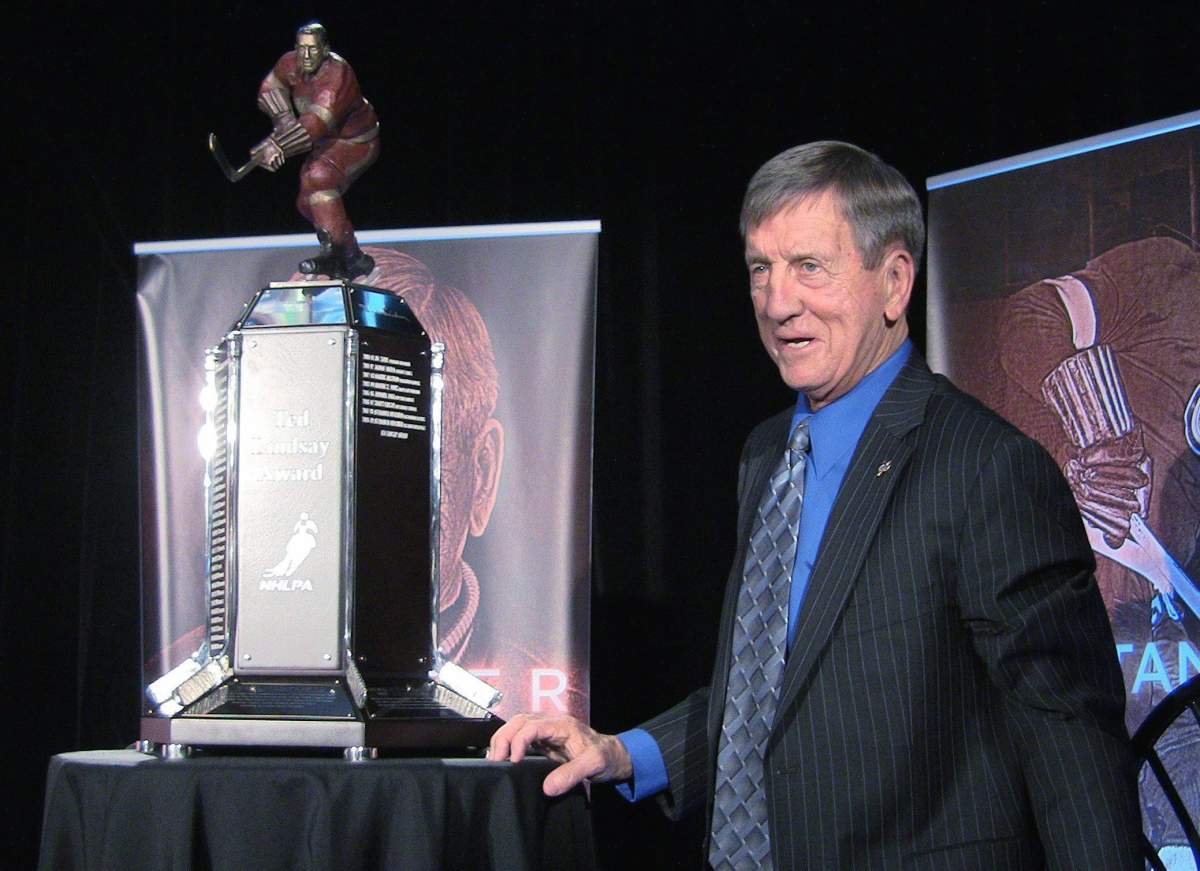The phrase “they don’t make them like they used to” certainly applies to Ted Lindsay.

Lindsay, a star winger for the Detroit Red Wings and the Chicago Blackhawks for 17 seasons, from 1944 to 1965 (with a four-year break before his final season), passed away Monday at age 93.
Nicknamed “Terrible Ted” and “Old Scarface” — a nod to the reported 600 stitches that he received throughout his playing career, many of them on his face — Lindsay’s legacy is as impenetrable as his tough-as-nails, take-no-prisoners attitude on the ice.
When chronicling Lindsay’s accomplishments, it’s no wonder the native of Renfrew, Ont., was inducted into the Hockey Hall of Fame in 1966, a year after he retired.
WATCH: Hockey Hall of Famer and pioneer Ted Lindsay dies at 93

Lindsay was a four-time Stanley Cup champion, nine-time NHL all-star, Art Ross Trophy winner (in 1949-50) and one of the best left-wingers in hockey. He also started the tradition of lifting the Stanley Cup and skating around the ice in an effort to share it with fans.
But it is what he did off the ice that will forever cement Lindsay’s place in the annals of hockey history.

Get breaking National news
Much to the chagrin of the handful of NHL team owners in 1967, including Detroit’s Jack Adams, Lindsay spearheaded the formation of the NHL Players’ Association, which helped many players who thought they were being taken advantage of by their teams.
In 2010, the NHLPA renamed its MVP award the Ted Lindsay Award. It was a small thank you to a man who made an incredible impact on the game.




Comments
Want to discuss? Please read our Commenting Policy first.